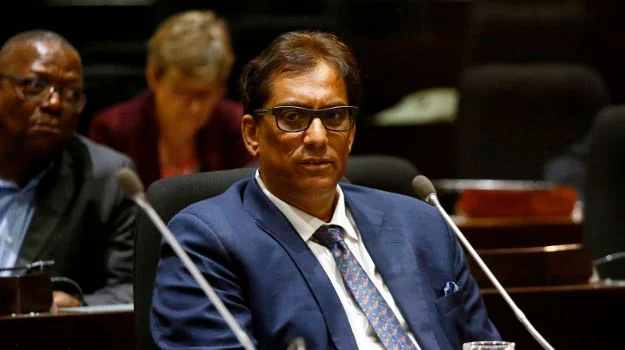Expulsion of Independent Media from the Press Council: A Detailed Overview
3 min read
Sekunjalo Independent Media boss Iqbal Survé. (Gallo Images/Phill Magakoe)

Sekunjalo Independent Media boss Iqbal Survé. (Gallo Images/Phill Magakoe)
On October 23, 2024, the Press Council of South Africa (PCSA) announced the immediate expulsion of Independent Media from its ranks. This drastic action stems from Independent Media’s refusal to comply with findings issued by the Council’s Adjudication Panel and the Chair of Appeals regarding a controversial column about legal journalist Karyn Maughan, as well as a previous ruling from 2016 involving journalist Gill Moodie.
The Press Council expressed disappointment that Independent Media responded to these findings with attacks on its integrity. While the Council will not engage with these allegations, it aims to clarify the facts surrounding the case.
The dispute centers on a column published in the Sunday Independent on March 3, 2024, which questioned Karyn Maughan’s journalistic integrity by likening her to Leni Riefenstahl, a prominent Nazi propagandist. The article, authored by Edmond Phiri, was also disseminated through various Independent Media platforms and their social media channels.
Following a hearing on July 23, 2024, Deputy Press Ombud Franz Krüger and a panel that included former law professor Karthy Govender and veteran journalist Joe Thloloe ruled that the article failed to meet the standards set forth in the Press Code. Specifically, the panel found violations of Section 7.2 concerning Protected Comment and Clause 3.3, which addresses issues of privacy, dignity, and reputation.
Section 7.2 of the Press Code allows for criticism and comment, even if extreme or unjust, as long as it is presented in a manner that is clearly identifiable as comment, is without malice, and considers all relevant material facts. Clause 3.3 requires journalists to exercise care regarding dignity and reputation, allowing overrides only when in the public interest and under certain conditions.
The panel emphasized that while writers should have the freedom to express their arguments, this freedom is limited when criticism devolves into mere abuse. They concluded that the attacks on Maughan lacked substantiation, and thus the article could not claim protection under the Press Code.
As a result of these findings, the panel ordered Independent Media to retract the article and issue an apology to Maughan. The panel also determined that the online version of the article should be removed due to the significant harm it caused to her professional reputation.
Independent Media’s subsequent application for leave to appeal this ruling was dismissed by Judge Bernard Ngoepe, who stated that the attack on Maughan was serious and lacked reasonable prospects of success.
In a letter dated October 18, Independent Media raised concerns about the Press Council’s processes, claiming a lack of integrity and suggesting bias in the Council’s rulings. They criticized the sanctions as disproportionate and claimed that the findings infringed on their editorial independence.
Judge Ngoepe addressed these allegations, stating that the essence of the complaint was that Phiri’s article was written not as an independent piece but under the influence of Independent Media’s management. Furthermore, Independent Media accused the Press Council of allowing Media Monitoring Africa (MMA) to intervene as an amicus curiae, alleging that this opened the door for advocacy groups to manipulate the complaints process against media entities.
The Press Council’s history with Independent Media dates back to 2016 when journalist Gill Moodie lodged a complaint regarding an article published across several Independent Media outlets. This article accused Moodie and others of attempting to undermine the reputation of Independent News and its chair, Dr. Iqbal Survé. Former Ombud Johan Retief directed Independent Newspapers to apologize to Moodie, but the company, having terminated its membership with the Press Council, did not pursue the appeal process.
The expulsion of Independent Media from the Press Council underscores the ongoing tensions between media organizations and regulatory bodies over issues of journalistic integrity and accountability. The Council’s decision reflects its commitment to upholding ethical standards and protecting individual reputations in the media landscape.